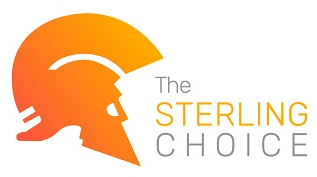
Postdoctoral Fellow- Early Detection of Lung Cancer Hinxton, England
Job description
We are recruiting a Postdoctoral Fellow under the leadership of
You will be responsible for:
The experimental approaches will mostly include histology associated task, including haematoxylin & eosin staining, laser-capture microdissection (LCM) as well as all the sample curation and library preparation of samples as described previously (Ellis et al., 2021, Nature Protocols). In addition, further experimental procedures including DNA/RNA extraction and other assays might be required. This work will rely on existing cohorts and clinical studies for which Prof Janes is clinical investigator. As such, close collaboration with his lab at University College London will be necessary and crucial. In contrast, the computational analysis will primarily rely on high-throughput sequencing methodologies including whole-genome (WGS), RNA or enzymatic methylation sequencing (EMseq) which will be a primary focus of your work. Furthermore, generation of single-cell sequencing data including single-cell RNA-sequencing (scRNA-seq) as well as spatial genomics and transcriptomics methods (BaSiSS; 10X VISIUM) can be accessbile to you and within your responsibilities. You will be expected to support the analysis of the sequencing data by learning and employing established bioinformatic workflows. Overall, your work will aim at understanding the role and consequence of somatic mutations on the phenotype of cells residing within the proximal airway and their relevance for disease.
This project is embedded into a Cancer Research UK funded grant, titled “Reinterpreting the ‘field of injury’ through understanding cellular level damage and dynamics and consequences for the Prediction, Prevention and Early Detection of lung cancer: ELIMINATE” awarded together with Prof Sam Janes at the University College London. The grant proposal builds up on the work implemented in collaboration between the Janes’ and Campbell groups, focusing on the earliest stages of lung cancer development, particularly in healthy tissues. In particular, the overarching project focuses on the revision of the concept of the “field of injury”. Previous work published in Nature (Yoshida, Gowers et al., 2020, Nature) has shown that epithelial cells in the proximal airway of individuals with smoking history (ex-smokers) can resist the accumulation of tobacco smoke-induced mutations, mirroring cellular populations observed in never-smokers. This exciting observation gives rise to a vision in which a deeper understanding of the homeostasis of the epithelial field could enable more accurate early detection of those at highest risk. In addition, this could facilitate the design of therapies that manipulate the clonal dynamics to enhance the outgrowth of cells with near normal mutation burden, thereby acting cancer protective.
About You:
- A PhD in Biological Sciences, Molecular Biology, Biotechnology or in a related field and a passion for problem solving
- Experience in a research environment with a good publication track record
- Formal and extensive training in either laboratory methodologies or statistical analysis of complex data sets
- The ability to effectively communicate with collaborators and occasionally present oral communication to large groups
- Proven independent working style, technical problem solving, data analysis and generation of novel ideas
- Team player with the ability to work with others in a collegiate and collaborative environment
- Ability to effectively prioritise, multi-task and work independently
- Demonstrates inclusivity and respect for all
- Highly organised
- An understanding, experience and published outcomes from analysing and interpreting large sequencing datasets and experience in programming (preferentially R or Python, but also Perl, C++, Java)
- Training in statistical methods appropriate for biological research
- Experience in genomics approaches and in method development
- Providing an enriching and respectful research environment so you can focus on and enjoy your work
- Mentoring you and providing opportunities for you to network across the genomics scientific community




